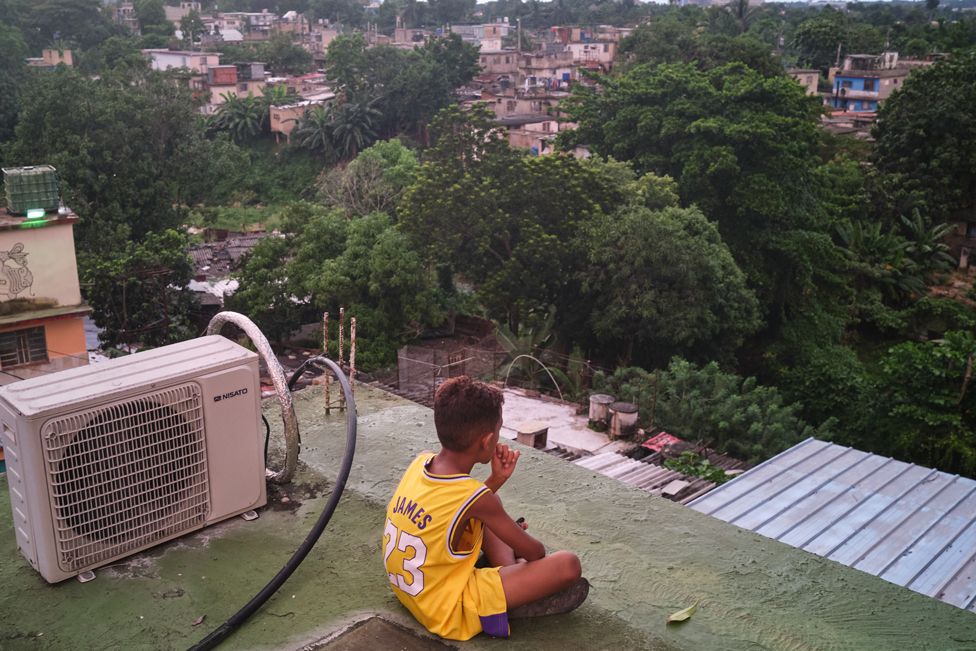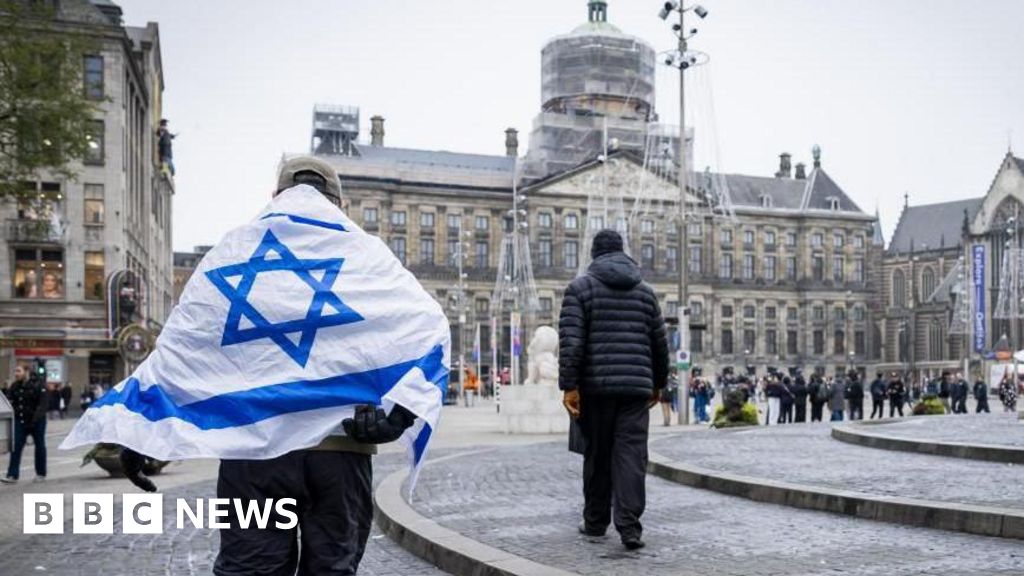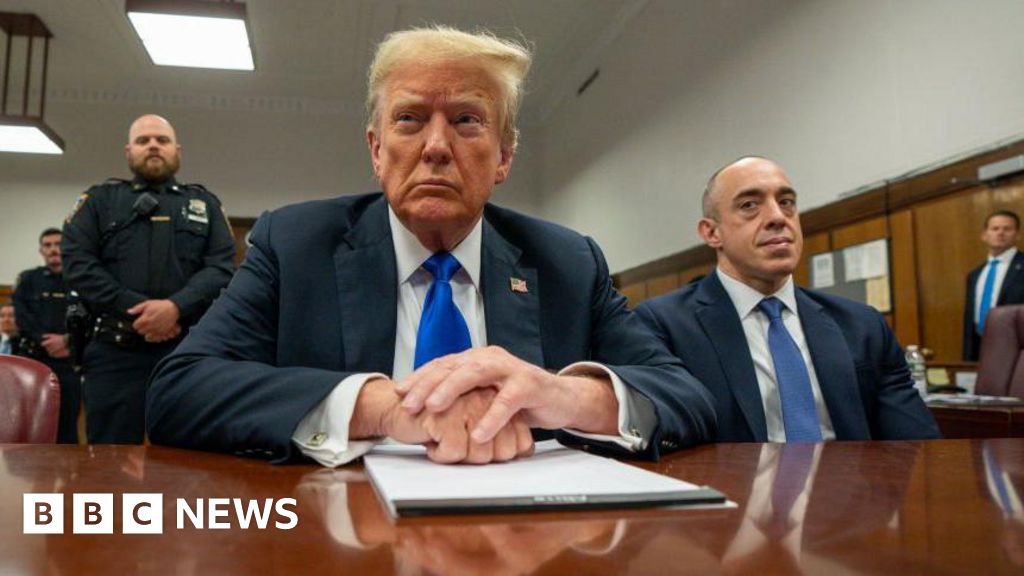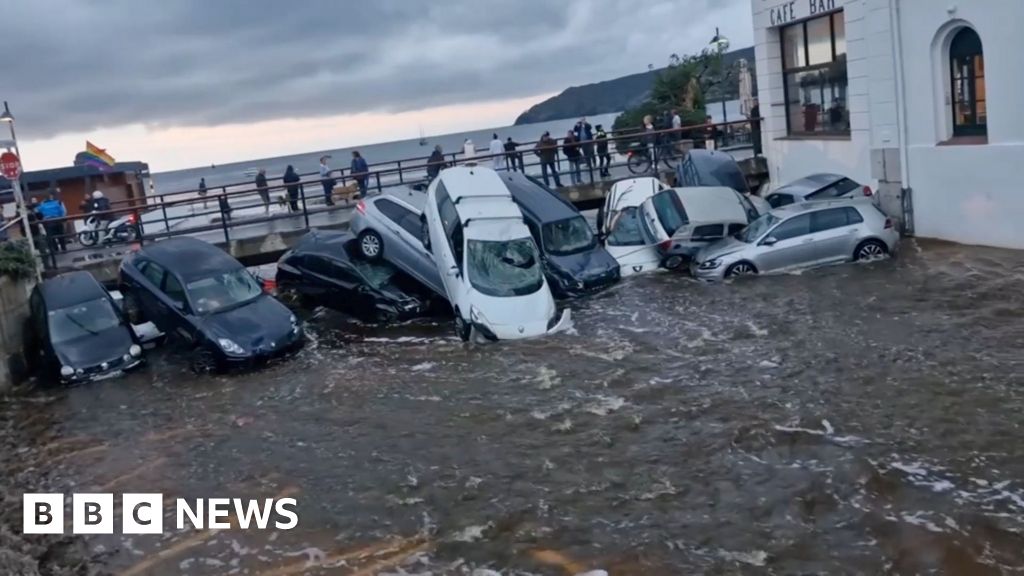ARTICLE AD BOX
 Image source, Natalia Favre
Image source, Natalia Favre
By Natalia Favre
Havana, Cuba
Cuba is experiencing a mass exodus. A political and economic crisis further worsened by the impact of the Covid pandemic has left many Cubans feeling that they have no option but to leave their homeland to search for better opportunities abroad.
Young Cubans, and young professionals in particular, are emigrating in their droves.
Hundreds of thousands of Cubans have been arriving in the US, both by land across the Mexico border and by sea. According to US Customs and Border Protection, the number of encounters border officials had with Cuban nationals jumped from 39,000 in 2021 to 224,000 in 2022.
This figure is higher than during the biggest Cuban migration waves in the 1980s and 90s put together.
With both sea and land crossings very risky, many of those emigrating make the difficult choice to leave their children behind.
The parents hope their kids will be able to join them once they have legalised their migration status, but that can take years. Meanwhile, they work to earn enough to be able to send money and gifts, in an effort to make up for the physical absence.
Many of those left behind are living with close relatives.
A 2017 study by Cuban psychologists showed that children who grow up with uncles and grandparents after their parents left the country experienced greater levels of anger, sadness and loss of family identity values.
The researchers said that the high number of cases "makes this problem one of the most frequent reasons for psychological consultation in the infant area in Cuba".
Cataleya Larrinaga Guerra, 9, lives with her younger sister Caterine, 7, and their grandparents in Los Pocitos, a poor neighbourhood of Havana.
Image source, Natalia Favre
Their father, Vladimir, left Cuba when Caterine was one month old.
Four years later, their mother, Yanet, took a plane to Panama from where she would begin her journey to the US to join the girls' father.
Since then, Vladimir and Yanet have been living in Austin, Texas, hoping that their family reunification request will be resolved in their favour so that they will be allowed to bring their daughters to live with them.
Image source, Natalia Favre
Every month, Vladimir and Yanet send money from the US to cover their daughters' expenses in Cuba and, through video calls, the girls choose the toys that their mother will buy them in a store in Austin to send them later to Cuba.
Image source, Natalia Favre
"It's very hard, they do feel the loss," says their grandfather Alfonso, who is also their main carer.
"When something happens to the youngest one, she starts crying and says she wants to be with her mum. Even when we give them all the love in the world, it's not the same, parents are parents and the girls need them," adds Alfonso.
Alfonso says that Caterine started calling him and his wife "mum and dad", and that they had to explain to her many times that they are her grandparents and that her parents are doing their best to be with them again soon.
Image source, Natalia Favre
Alexander Gonzales León, 9, lives in a two-storey house in Guanabacoa, on the outskirts of Havana. Up until three years ago, his parents, grandparents, great-uncles, great-grandparents and his cousin all lived there together.
But now, most of the rooms are empty and Alexander is cared for by his great-aunt Mercedes and his great-grandmother. The rest of the family is in the US.
Image source, Natalia Favre
His mother, Lourdes, used to go countries like Guyana or Panama to shop for essentials she could not get in Cuba. She would also resell items back home as a way to make money.
One day, she stayed in Mexico and applied for the papers needed for her son to join her there. But things did not work out as she had planned.
The borders were closed due to the Covid pandemic and Lourdes became pregnant with her second child in Mexico.
The whole family decided that it would be best if she crossed over into the US and Alexander stayed put in Cuba until she could join her legally.
Alexander sees his mother every day on video calls. But it's three years since he last hugged her.
Image source, Natalia Favre
His great-aunt Mercedes, who has been left in charge of the boy, receives money every month from Alexander's mother.
"Food, clothes, even the school uniform, everything is sent to me by Lourdes," she says.
Mercedes says that Alexander does not feel his mother's absence too much because he gets to see her on the screen of her phone.
"Only when I scold him, he tells me: 'You should have let me go with my mum'."
Alexander is convinced he will soon be reunited with his mother in the US and get to meet his little brother. "Next year, I won't be in Cuba anymore," he tells his great-aunt.
Eyko Rodríguez Lara's parents left for Russia a year ago in search of a better life.
Image source, Natalia Favre
Now Eyko lives with his two-year-old sister Elizabeth and their two grandmothers, Lourdes and Raisa. The two women share caretaking duties for their grandchildren and are living on the same property.
Image source, Natalia Favre
After his parents left for Russia, Eyko began to develop a skin condition and started suffering from anxiety. His grandmothers took him to see a psychologist, who told them that his parents' absence was the cause of the boy's problems.
Eyko has been attending art workshops at a cultural centre in Havana to help ease his anxiety.
Image source, Natalia Favre
His sister Elizabeth, who is very shy, has become extremely attached to her paternal grandmother Lourdes.
Image source, Natalia Favre
The grandmothers hope that the children's parents will soon be able to get legal status in Russia and take them with them. But they know this could take years.
Raisa says her daughter regrets leaving her children behind. "Her hair is falling out with sadness, she misses them so much", she says.
All photos by Natalia Favre and subject to copyright.

 1 year ago
21
1 year ago
21








 English (US)
English (US)